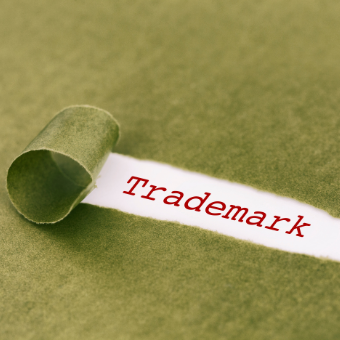

Legal Insight
March 2022
Ioannis Psarakis, Lecturer, LL.M (III), PhD Cand.
(Republished from Moneyreview)
Summary: The invasion of Ukraine has brought great impact on the Russian market. Western giants wish to "disengage" from the Russian market - something which in some cases (see e.g. franchise contracts) is not so simple to do. Isolating Russia - by any means - is a form of (informal) sanctions for its invasion of Ukraine. Russia, for its part, applies intellectual property law "as it sees fit" by supporting domestic companies that violate the corresponding rights of Western companies.
Ι. The invasion of Ukraine and the purchase of Russia
The implications of the war in Ukraine are really moving in all directions. Some are a natural consequence of the situation (price increases, uncertainty in business), others are in the field of sanctions against Russia (e.g. blocking the SWIFT system), while Russia is also using its "weapons", attempting to hit forces hostile to it in any way it can when the real weapons are not enough. In today's article we will show how Russia has attempted to exploit the great value embodied in intellectual property rights in the "war beside the war" being waged not so much with Ukraine as with third countries, in order to strike them. Finally, we will understand the main reason why many giants find it difficult, even if they wish to, to leave the Russian market.
II. Pepa went to war
Intellectual property rights have the capacity to embody values without limits. For example, the trademarks of Amazon, Apple and Google are valued as much as the entire GDP of Switzerland, Hungary and Luxembourg﮲ $934 billion.
Recognizing this reality, according to a decree of March 7, the Government of the Russian Federation stipulated that those who infringe intellectual property rights whose beneficiary is a natural person or a company from states hostile to Russia's forces' invasion of the Ukrainian territories will not owe compensation for their use without obtaining prior permission.
The decree specifically refers to "patent holders associated with foreign states committing hostile acts against Russian legal and physical persons" and stipulates that "the amount of compensation is 0% of the actual income from such use".
Indeed, it appears that the Russian Courts are extending this treatment to other intellectual property rights: An article in Skynews of 13.3.2022 refers to a decision which recognized that the use of the well-known cartoon Pepa the Pig (a trademark in Russia - Trademark - and therefore protected) can be used by third parties without paying any compensation to the entitled American company. The court decision made reference, in particular, to "the hostile actions of the US and allied forces" in the context of the war with Ukraine.
III. McDonald's and Uncle Vanias
The Russian government thus seems to be "winking", especially at Russian-based businesses. They in turn see a very good opportunity to exploit the gap left in the market by giants who are withdrawing from the domestic market. Besides, however, domestic companies are taking advantage of the (non-existent) reflexes of the authorities and courts there in the field of defending the intellectual property rights of 'hostile forces'. In this context, the free-riding phenomenon is perfectly rational to flourish.
A recent example of the above phenomenon is the Uncle Vanya project . Uncle Vanya attempted to operate with the familiar McDonald's 'M', simply rotated 90 degrees to resemble a 'B', but with a direct reference to the well-known McDonald's sign (McDonald's has left the Russian market). Thus, Uncle Vanias, in addition to the significant market share that we would expect to secure from the 'piece of the pie' left behind by McDonald's, is also taking advantage of the reputation, the good name and all those things that make the McDonald's mark considered in legal circles to be a 'reputed trademark'.
IV. Marks and Spencer, Burger King and franchise agreements
There are, however, many cases in which well-known companies have chosen to operate in Russia under franchise agreements. In this case, they do not own the shops - they belong to the so-called 'franchisees'. Due to the basic characteristic of this agreement (the actual operators of the business in Russia are other persons - natural or legal persons - to whom these well-known companies grant this right in return for a so-called 'royalty fee'), the decision to leave the Russian market cannot automatically be translated into action. Examples of this case, as reported in a BBC article last week, include well-known brands such as Marks and Spencer and Burger King. In these cases, the franchise agreement would have to be terminated (termination) so that those stores, under that brand, would cease to operate. But this can only happen for very specific reasons, based on the specific contract in each case and in particular through the interpretation of that contract.